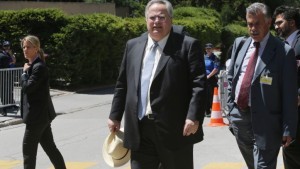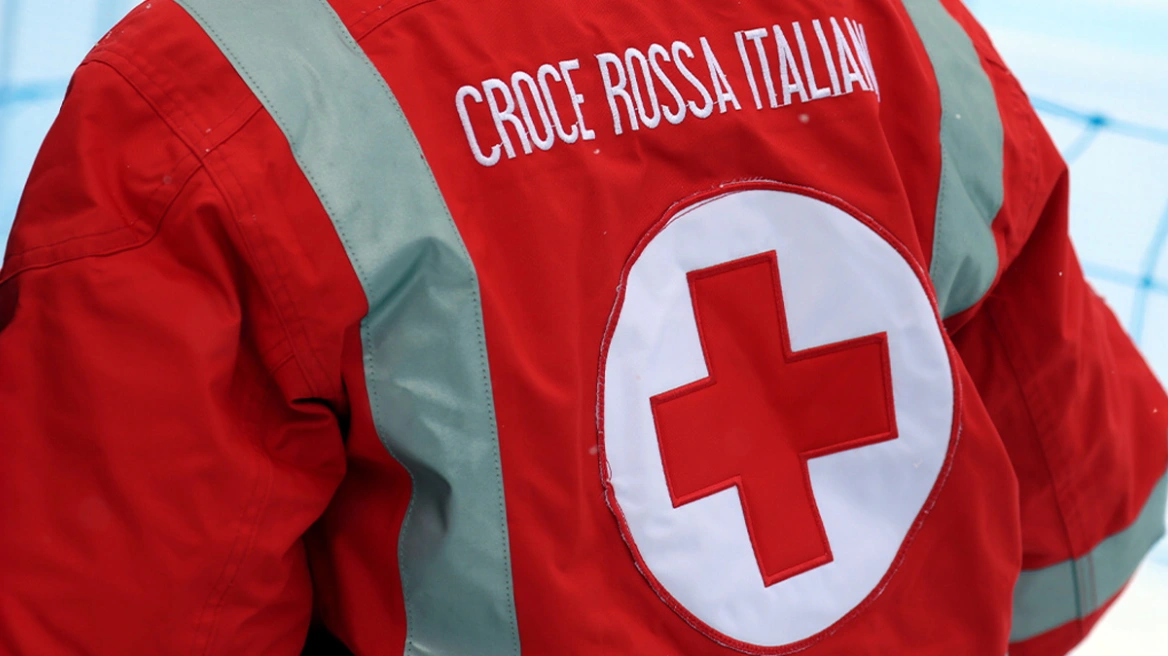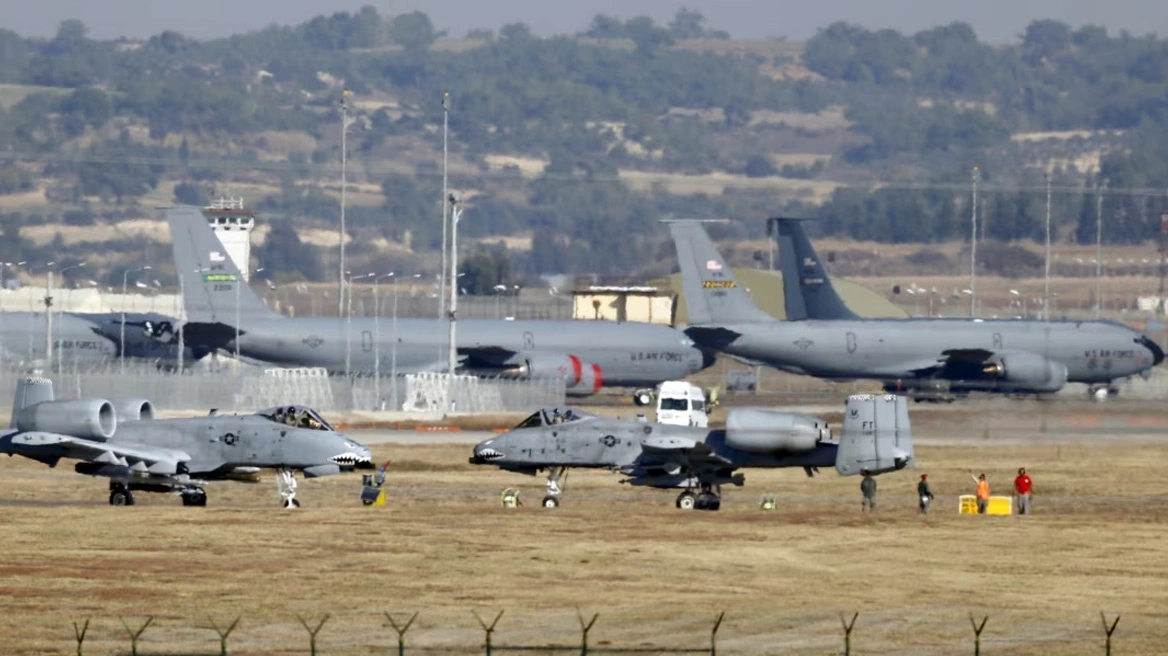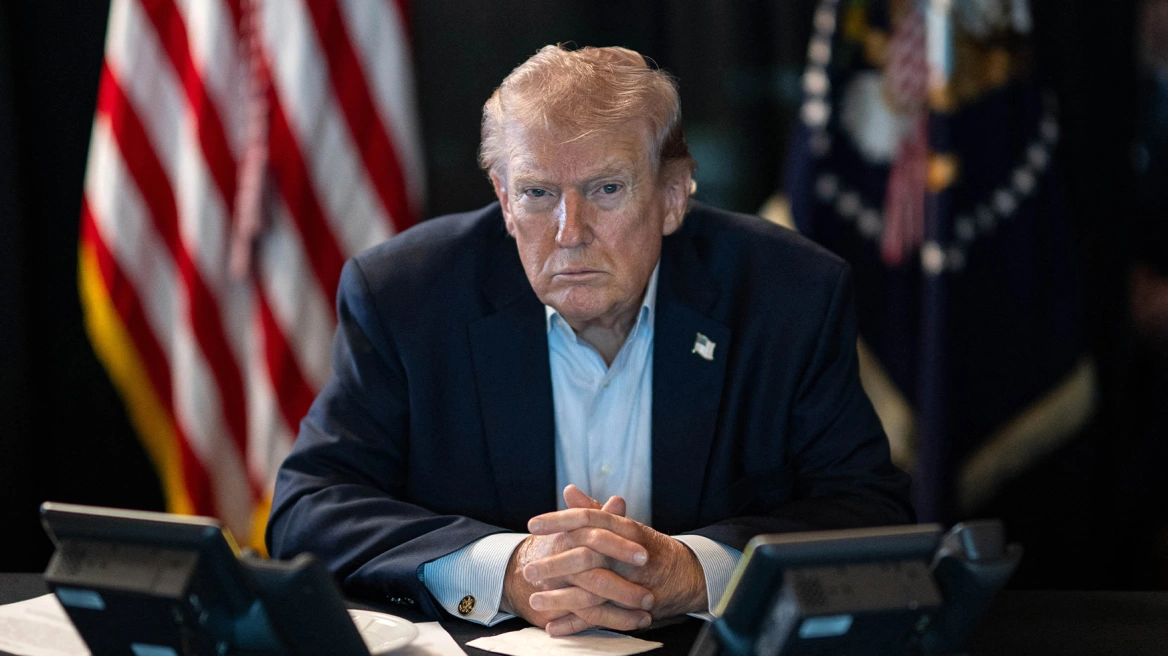Greece’s Foreign Minister Nikos Kotzias on Monday laid the blame for the collapse of the Cyprus talks in Crans Montana squarely at Turkey’s door, responding with some plain talk to questions from the Athens-Macedonian News Agency (ANA).
Kotzias, who was speaking during a joint press conference with visiting Serb Foreign Minister Ivica Dacic, said that Turkey had essentially demanded Greece’s blessing for an agreement that would allow it to intervene in Cyprus at will.
“Did they want Greece to let them hang from the barrels of their tank guns an agreement with Greece’s signature that they can enter Cyprus whenever they like … They wanted the army that planned the coup in Turkey and where the head of the occupation forces was arrested in [the northern section of Cyprus] as a putschist, along with 10 senior officers, this army of putschists, to be the guarantor of democracy and of the coexistence of the two Communities on Cyprus?” Kotzias said.
According to the foreign minister, he had made this clear to his Turkish counterpart Mevlut Cavusoglu and also pointed out that the Turkey’s views were contrary to the traditions of western enlightenment and western political culture, where the military was subordinate to politics and had no right to make policy decisions.
Commenting on the “blame game” begun by Ankara, the Kotzias said that Turkey’s responsibility for the collapse of the talks was as clear as the fact that it wanted things that were contrary to democracy, “our political culture” and international law.
“Turkey confessed that it had been stringing us along for five days, that it was neither willing, able nor even inclined to make this compromise, as soon as the UN Secretary General decided to put this supposed compromise to paper,” Kotzias added, saying Cavusoglu had “pretended that he was ready for a compromise” before the UN Secretary General.
“In Switzerland, Turkey submitted a half-page document that was identical to the text submitted by the Turkish Cypriots. In this it sought to retain its right of intervention and the alliance and guarantee treaties. Following this it supposedly became more flexible and was prepared to accept compromise solutions. When the UN Secretary General – as is stated in the announcement we issued at the foreign ministry – decided to write down these agreements in a small paragraph two days ago, so we could continue the discussions in New York next week, Turkey said that it was not in a position to make compromises and that it sought to preserve the illegal, contrary to international law and anachronistic right to intervene in Cyprus,” the foreign minister said.
Kotzias also pointed out that it was “under my own constant personal pressure,” that Cavusoglu was finally forced to admit that Turkey wants these rights of intervention “so that it can intervene in a sovereign and independent member-state of the EU and United Nations whenever it wants.”
“This demand is contrary to international law, counter to any thought of a solution and also contrary – as I pointed out to him during the meeting – to the rules of democracy, the rules of truth and reality and contrary to the rules of the UN,” he added.
Ask me anything
Explore related questions





